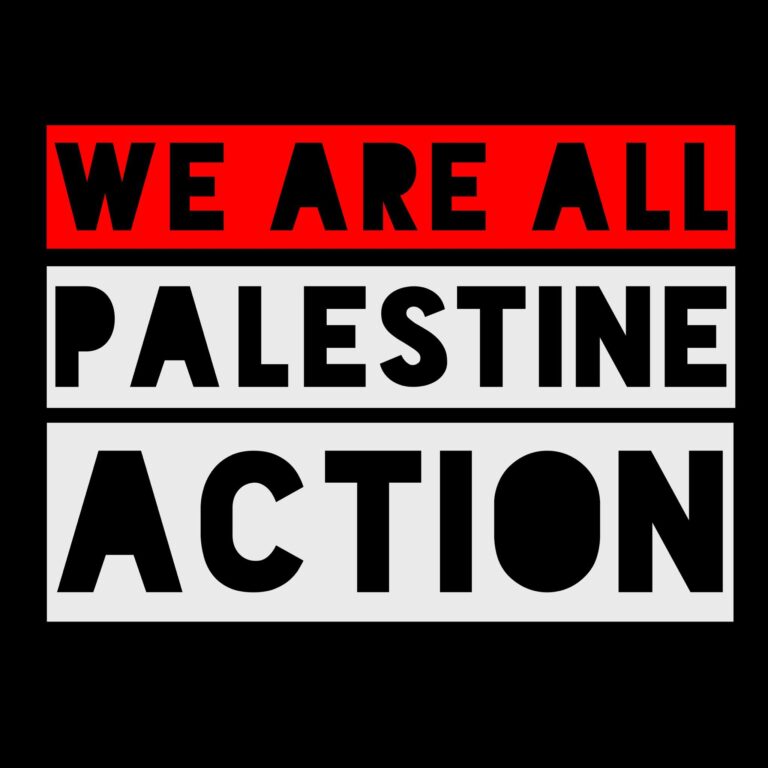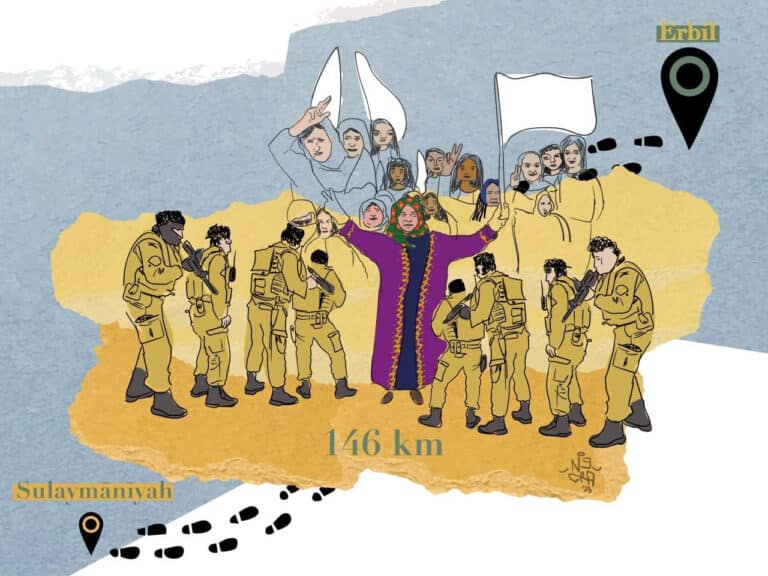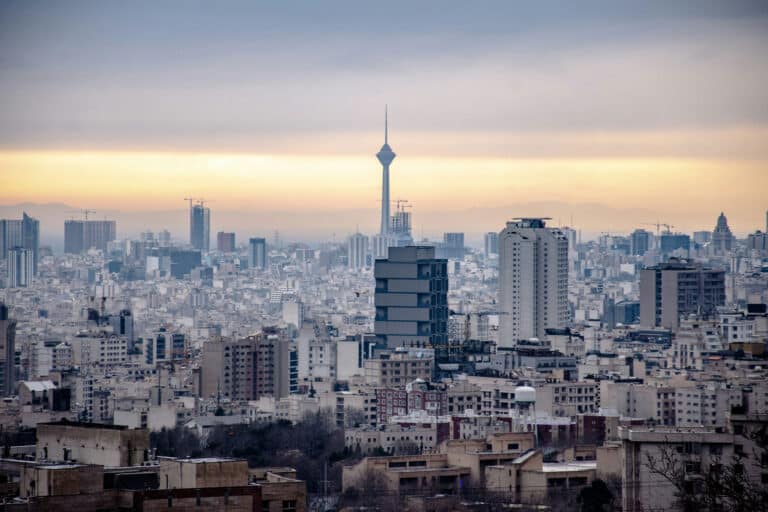We were heading out for our usual daily routine—myself and my Palestinian friends. Our purpose was simple: to capture photos and videos of the Tel Rumeideh area within the H2 sector of al Khalil/Hebron. As we neared Shuhada Street, my Palestinian friend urged me to continue filming alone, as Palestinians were barred from entering the street by the Israeli government. Despite my reservations about venturing into a settler-dense area to film, I set aside my concerns and proceeded onto Shuhada Street. I was not engaging in anything unlawful, merely documenting my surroundings.
Picture yourself walking in your own city, just minding your business. When suddenly, like something out of a dream, or maybe a nightmare—a big white car slams its brakes, and a driver forces you to stop. He demands your ID in a language you don’t understand. And then, there it was in his left hand, a massive gun that seemed to cast a long, eerie shadow. For a moment, that gun looked gigantic, while the cars around us shrank. I couldn’t help but think if Salvador Dalí could see this, he’d turn it into the wildest artwork.
This situation struck me as odd. Why would a “local” react in such a manner, armed with a machine gun and limited English, demanding our passports and inquiring about our purpose there? I was merely recording with my camera.
At that moment, I realized that not following his orders could change my life forever. If I resisted, if I didn’t do exactly what he said, I might not be writing this article right now. I might be watching everything from above, in a totally different world.
With confidence in our innocence, I remained composed, complying with the settler’s demands for our IDs, handing over my European passport and proceeding to the nearest checkpoint.
I nervously rummaged through my wallet for my ID. As I handed it over to the stranger, a sinking feeling settled in; I began to grasp the possibility that things might not go well. His reaction spoke volumes; the bright green ID in my hand was an unmistakable marker of my Palestinian origin. He started making calls and talking to different authorities. Where was this guy getting his power from?
During our brief walk to the checkpoint, I observed my Palestinian friend’s unease. He asked me to hold his GoPro camera and conceal the memory card. Initially, I hesitated, as this action could potentially lead to trouble if discovered. Yet, it became apparent that if the soldiers found this card on my Palestinian friend, the consequences could be exponentially graver for him than for me. I concealed the card as we reached the checkpoint.
As we walked, a mere two minutes from the checkpoint, I handed over the memory card and camera, urging my Italian friend to document any untoward events. Aware of the differing treatment foreigners receive, I anticipated potential frisks, aggression, or whatever they deemed fit for me—after all, I was Palestinian. Even in death, I’d be one among thousands, but we are not just a number! Unaware of what awaited us, we settled on the street near the checkpoint.
There, several soldiers arrived, armed with their machine guns, and encircled us. A barrage of questions followed: Who are you? What are you doing? Why are you capturing videos? My responses were straightforward: I am a tourist documenting the situation neutrally in this complex city. My explanation was readily accepted; the soldiers treated me with exaggerated politeness, leading me to question their motivations. Were they being overly courteous due to my European background? Was this an attempt to appear “friendly” to a tourist? Contrastingly, my Palestinian friend encountered a vastly different treatment.
Heart racing, hands trembling, throat parched—I found myself amidst an increasing number of soldiers and halted cars. Detained without understanding the reason, we observed soldiers gathering around us. Some spoke English, though not Arabic. A puzzling paradox: How could they bear arms, control Palestinian lives, and make judgments without understanding the individuals involved? In English, I explained my intentions of opening a clinic to aid those affected by ongoing violence and settlers’ actions.
His story was met with skepticism, and the soldiers intensified their inquiries, subjecting him to mounting pressure. Tensions escalated when the camera card accidentally fell from my pocket. The soldiers grew more aggressive, opting to involve the police with potential arrest in mind.
Suspicion grew; we were surrounded by soldiers, settlers, and vehicles. Our explanations fell on skeptical ears. The questioning continued, further exacerbated by differing accounts and the arrival of police.
The officer took my passport and signaled for my Palestinian friend to accompany him toward his car. At that moment, I feared my friend might be detained or worse. Even so, I maintained my composure, considering the worst-case scenario of deportation to my home country.
An inner calm battled my escalating anxiety; this detention felt milder due to past experiences. Detained before with fellow Palestinians, now in the company of a foreigner, the risk of severe treatment seemed diminished.
Following individual interrogations, the officer summoned me. He posed questions and detected inconsistencies between our stories. His demeanor turned hostile, accusing me of being a spy and admonishing me to reveal the truth. I remained composed, drawing inspiration from within, and explained that I was merely a tourist capturing videos and photos within the boundaries of the law.
Police and soldiers displayed varying behaviour—were they being kind or driven by my foreign companion’s presence? Could kindness and oppression coexist? Soldiers wielded power to control, armed with guns that could end lives, yet offered reassurances and water if we went to drink. This contrast jarred with my memories of their treatment.
After a few moments of panic, the officer informed us that we were free to go. Is this hyper-militarization normal? Why did the officer display such anger, only to permit us to depart shortly afterward? What was his intention? Perhaps my actions were bothersome to the Israeli government, though not illegal. Throughout these experiences, I constantly recognized my fortune in holding an Italian nationality. The treatment I received was distinct, and the worst potential outcome for me would have been deportation. Can my friend share the same sentiment? Can he endure each day with the dread that capturing images might land him in jail?
With an aspiration for a brighter future, I conclude my detention tale. A future devoid of military incursions, offering museum visits to comprehend Israel’s apartheid history and the oppression endured by Palestinians. Could the apartheid wall transform into a remembrance site, shedding light on the Palestinian experience? Envisioning a world where Palestinian refugees find welcoming homes in Palestine and they can visit and live on their properties, raises hope—albeit uncertain. Amid this uncertainty, I ponder: Will I witness freedom or witness the next generation of Palestinians endure further suffering, seated beside my ancestors?
I envision a city where people, especially Muslims, can live freely without the constant fear of having their culture suppressed. A city where walking down the streets doesn’t involve being subjected to invasive scans and body checks by foreign soldiers for no apparent reason. I picture the old city of Hebron without the presence of checkpoints where merchants can proudly showcase their products in a vibrant market atmosphere. I imagine a city where children can attend school without the looming presence of soldiers, and where they don’t have to encounter bombs and tear gas. In my vision, I see myself strolling along the streets of Hebron with my friends, capturing moments without the constant fear of being detained for simply taking photographs.




